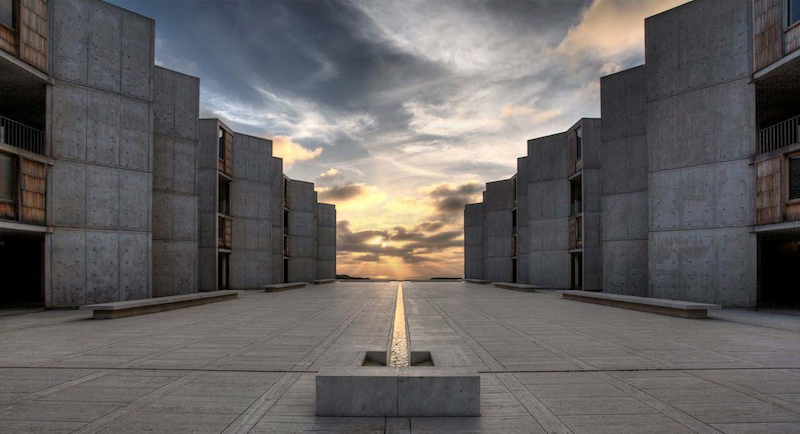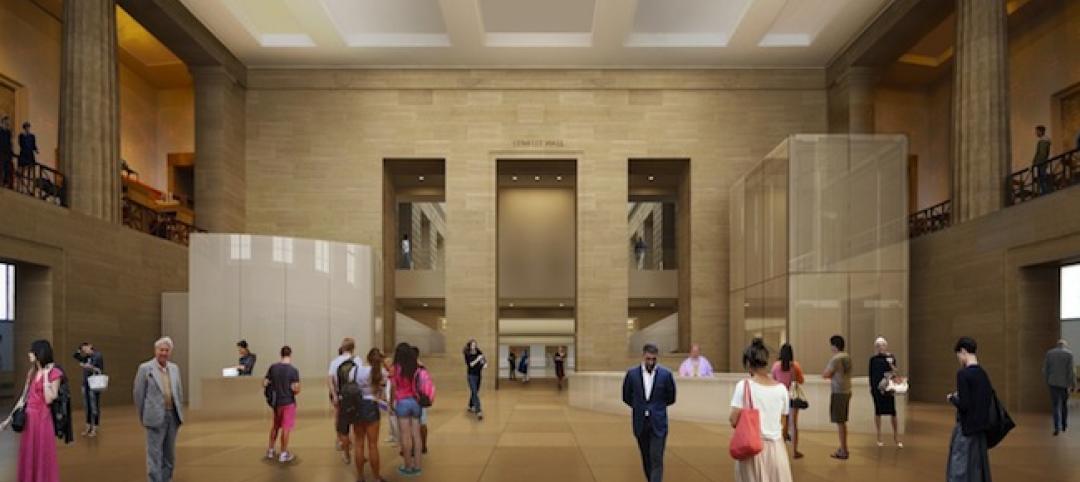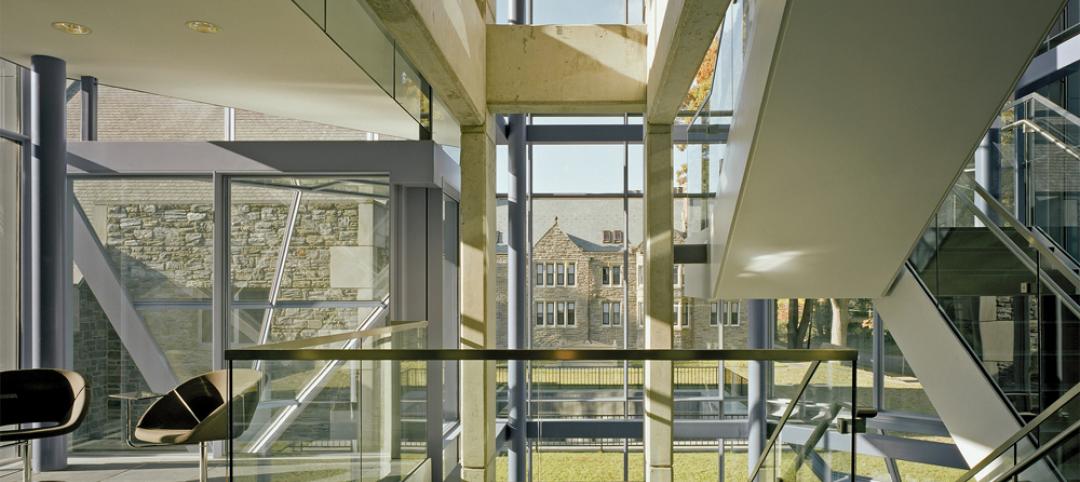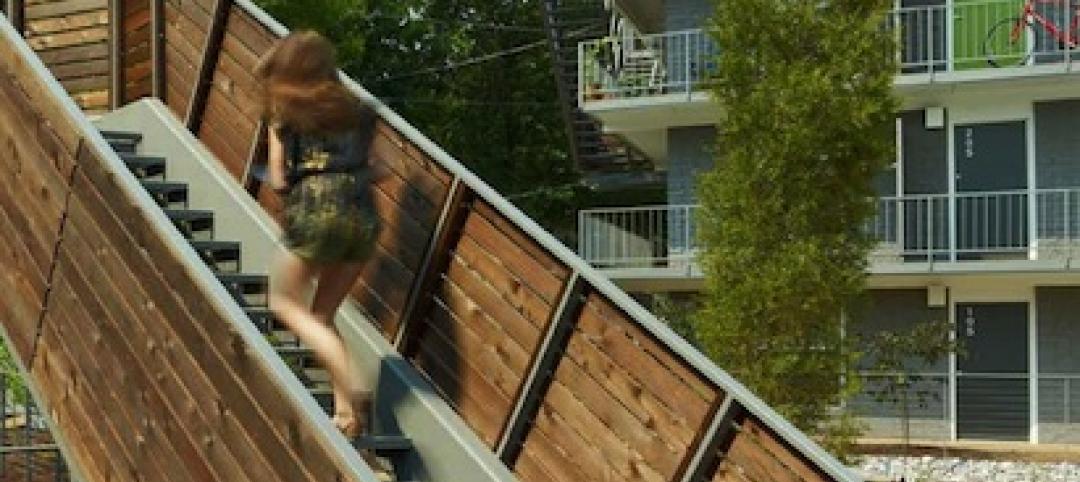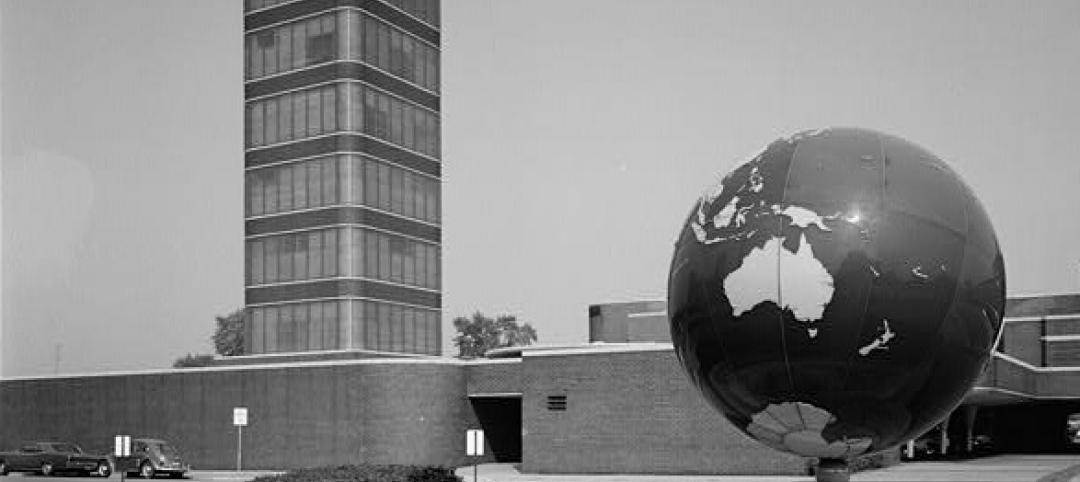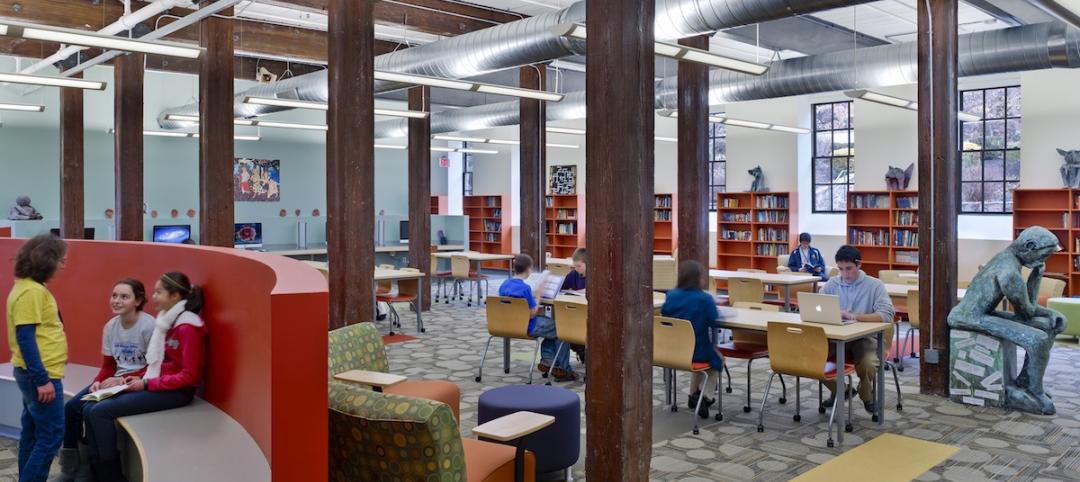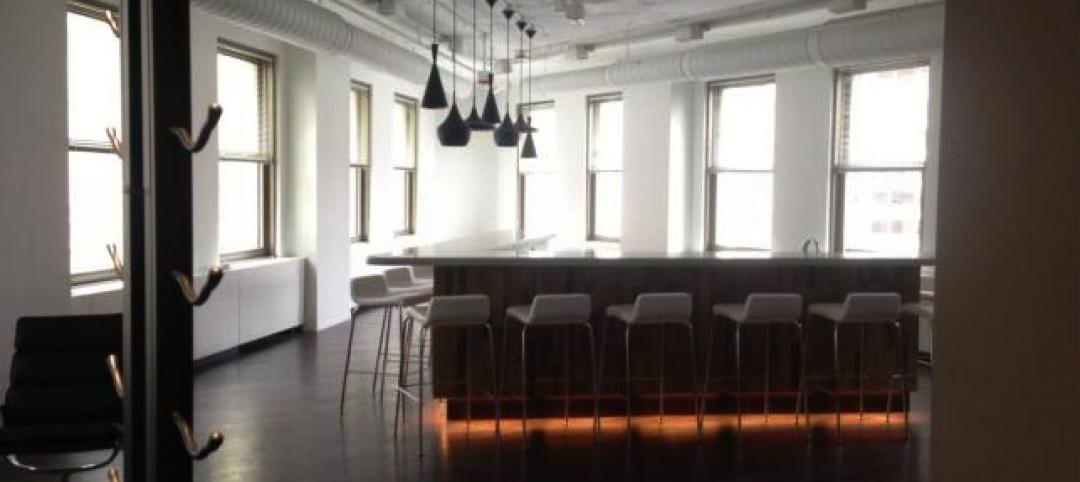After three years of research, the Getty Conservation Institute (GCI) announced construction work is underway to conserve key architectural elements of the Salk Institute for Biological Studies in La Jolla, California. Designed by famed architect Louis Kahn and completed in 1965, the site is widely considered to be a masterpiece of modern architecture.
Dr. Jonas Salk, the developer of the polio vaccine, commissioned Kahn to design the campus for his new scientific research institute on a coastal bluff in La Jolla, just north of San Diego. Kahn worked closely with Salk on the design of the building, which houses laboratories and other research facilities.
But fifty years of exposure in a marine environment has caused the institute’s distinct teak window walls, set within the monolithic concrete walls of the site’s study towers and offices, to weather and deteriorate in a non-uniform manner. The construction work, designed by Wiss, Janney, Elstner Associates, Inc. will address these issues. Getty-led research and funding launched in 2013 as part of the GCI’s Conserving Modern Architecture Initiative (CMAI) helped to initiate the current construction work.
The 203 teak window walls are significant elements of the overall site, expressing a human element and scale within the monumental structure. Although prefabricated, each window has a handcrafted quality due to the detailing of the teak wood by carpenters and customization to fit many sized openings. Each offers a different combination of sliding windows, louvers, and shutters, allowing staff to control light and air in their workspaces.
Research found that the window walls suffered from surface erosion, the growth of a fungal biofilm (likely spread by nearby eucalyptus trees) that gave the wood a black appearance that varied significantly by exposure, changes to teak color due to previously applied sealers and finishes, insect infestation, and moisture infiltration due to the omission of flashings and weather stripping and the failure of sealants.
The GCI and its consultants engaged in historical research, including visits to the Khan archives and collecting oral histories, in order to better understand the significance of the window walls and Kahn’s original vision for the site. It explored the extent of damage to the window walls and performed physical and laboratory analysis to identify materials used and various causes of damage and deterioration. The GCI also convened a meeting of Salk representatives, other Kahn building owners with similar wood conservation issues, and preservation professionals. Possible treatments for the wood and wood replacement options were also researched, as well as design modifications to improve the overall performance of the assemblies. Finally, the GCI, along with the architectural and engineering firm Wiss, Janney, Elstner Associates, Inc. (WJE), which served as the historic preservation consultant to the Salk Institute, developed a series of on-site trial mock-ups to evaluate different repair approaches and treatments to identify the most appropriate ways to move forward.
WJE has developed comprehensive construction documents to implement the repair and conservation of the window walls, with interventions ranging from minor (cleaning and repair), to moderate (cleaning, repair, and some replacement of materials), to major (removal of the entire window assembly where severely deteriorated and replacement using like-for-like materials). At this time, WJE is currently implementing the repair work, which is expected to be completed in 2017.
Related Stories
| Jun 11, 2014
Bill signing signals approval to revitalize New Orleans’ convention center corridor
A plan to revitalize New Orleans' Convention Center moves forward after Louisiana governor signs bill.
| May 30, 2014
Developer will convert Dallas' storied LTV Building into mixed-use residential tower
New Orleans-based HRI Properties recently completed the purchase of one of the most storied buildings in downtown Dallas. The developer will convert the LTV Building into a mixed-use complex, with 171 hotel rooms and 186 luxury apartments.
| May 21, 2014
Gehry unveils plan for renovation, expansion of Philadelphia Museum of Art [slideshow]
Gehry's final design reorganizes and expands the building, adding more than 169,000 sf of space, much of it below the iconic structure.
| May 6, 2014
'Ugliest building in New Jersey' finally getting facelift
After a decade of false starts and mishaps, the American Dream mall in the Meadowlands may finally get built.
| Apr 16, 2014
Upgrading windows: repair, refurbish, or retrofit [AIA course]
Building Teams must focus on a number of key decisions in order to arrive at the optimal solution: repair the windows in place, remove and refurbish them, or opt for full replacement.
| Apr 11, 2014
ULI report documents business case for building healthy projects
Sustainable and wellness-related design strategies embody a strong return on investment, according to a report by the Urban Land Institute.
| Mar 25, 2014
Sydney breaks ground on its version of the High Line elevated park [slideshow]
The 500-meter-long park will feature bike paths, study pods, and outdoor workspaces.
| Mar 24, 2014
Frank Lloyd Wright's S.C. Johnson Research Tower to open to the public—32 years after closing
The 14-story tower, one of only two Wright-designed high-rises to be built, has been off limits to the public since its construction in 1950.
| Feb 26, 2014
Adaptive reuse project brings school into historic paper mill
The project features nontraditional classrooms for collaborative learning, an arts and music wing, and a technologically sophisticated global resource center.
Sponsored | | Feb 20, 2014
Chicago’s historic Wrigley Building renovated to attract tech companies
Purchased in 2011 by a consortium of investors led by BDT Capital Partners, the building’s new owners have recently renovated and reimagined the next life for this architectural landmark—as a hub for tech firms.


